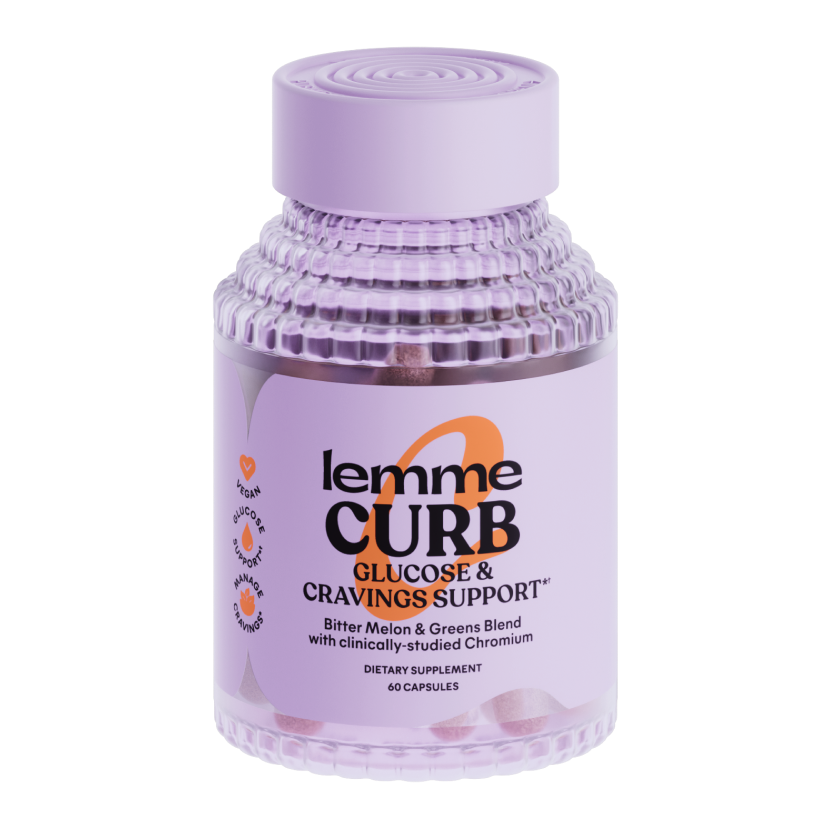
Herbs for Sleep: 7 of the Most Effective
Sleep is one of the most important ingredients for a healthy lifestyle. A good night's sleep helps your body recharge, promotes growth and development, and enhances your physical and mental health. Sleep problems can diminish your brain function, energy levels, immune system efficacy, physical recovery, and overall well-being.
Herbs are potent natural sleep aids that can help fight occasional sleeplessness to give you a better night's sleep, but what herbs and nutrients are best to support sleep, and are there other things you can do to help improve your sleep quality?
Today Lemme is here to talk about seven of the most effective herbs and nutrients to support sleep, as well as other strategies you can implement. Read on to learn how to promote sleep hygiene and wellness.
What Herbs and Nutrients Can Support Sleep?
Many different herbs and nutrients have powerful sleep-inducing capabilities, including the ability to relax your nerves, mitigate stress, decrease your heart rate, and soothe your muscles.
Some of the best herbs and nutrients to support sleep are chamomile, lavender, L-theanine, ashwagandha, valerian, elderberry, and lemon balm. Some of these ingredients work because they contain the powerful amino acid tryptophan, which can stimulate serotonin production to help you feel less nervous, excited, or anxious before bedtime.
However, there are several other important ingredients or properties in these herbs and nutrients that are important to support sleep. Let's take a more detailed look at each of these natural sleep-inducing options below.
1. Chamomile
Chamomile is a daisy-like plant from the Asteraceae family. This flower has long been used in the medicinal world as a powerful calming and sleep-inducing herb.
Its dried flower has a rich nutrient profile that can work to support a good night's sleep, especially thanks to its terpenoids and flavonoids. Flavonoids are nerve-relaxing compounds that can help provide a soothing effect.
Many people drink chamomile tea before bed to help them drift off to sleep. Chamomile's relaxing effect can also help support good quality sleep by working to help you fall into deeper rest.
2. Lavender
Lavender is a purple flowering plant in the mint family (Lamiaceae). This aromatic flower may support healthy sleep specifically because of the compound linalool, which is the volatile terpene that makes this plant so fragrant.
Many people use lavender oil as aromatherapy before bedtime because its calming properties can help support the overall quality of your sleep.
One study found that those who struggled with occasional sleep problems and received lavender aromatherapy experienced support for sleep quality and a more restful night of sleep overall.
3. L-Theanine
L-theanine is an amino acid found in tea leaves and some types of mushrooms. Most notably, L-theanine is abundant in green tea and is thought to have soothing properties that can support feelings of relaxation to help you drift off more easily.
L-theanine may also work to support your overall well-being so you can feel your best. L-theanine is a common ingredient in supplements for sleep and wellness, thanks to its many potential health benefits.
4. Ashwagandha
Ashwagandha is a shrub native to Asia and Africa whose leaves have ingredients that may promote healthy sleep support. The leaves of this plant contain triethylene glycol, which is a compound that can help support healthy cortisol levels and reduce occasional feelings of stress.
These properties can help induce a calming effect to soothe feelings of worry and tension, which in turn may support healthy sleep.
5. Valerian
Valerian (Valeriana officinalis) is a flowering plant and herb that is native to Europe and Asia. The plant is well-known to support healthy sleep and has been around as a sleep hygiene enhancer since the 18th century.
Valerian has strong sleep-inducing capabilities because of its root. A meta-analysis review of 60 studies on this herb indicates that valerian root is an effective supplement to support healthy sleep.
The valerian root contains valerenic acid, which has relaxing effects because it can support your central nervous system health, support proper GABA receptor activity, and decrease sleep latency. Its powerful effects on the nervous system can help you to wind down and feel calmer so that you can drift off more easily at bedtime.
6. Elderberry
Elderberry comes from the elder tree, which is most commonly native to Europe but also grows in other parts of the world. Elderberries are dark purple in color and have a long history of use for their ability to support overall health and wellness.
Elderberries contain valeric acid, which is the compound that helps you get a good night’s sleep and feel a general calmness at nighttime. In addition to valeric acid, elderberries are known for their rich antioxidant properties.
7. Lemon Balm
Lemon balm, also known as Melissa officinalis, is an herb in the mint family that is native to Southern Europe, North Africa, and West Asia.
Lemon balm has several different components, including flavonoids, terpenes, and rosmarinic acid, to support a calm vibe and feelings of relaxation.
In particular, rosmarinic acid may help soothe feelings of stress, which can, in turn, can help support restful sleep.
What Else Can I Do To Support Sleep?
In addition to adding these herbs and nutrients into your bedtime routine, there are several other methods you can engage in to support a better night’s sleep.
Improve Your Sleep Hygiene
Sleep hygiene refers to the environment in which you sleep as well as the habits you practice throughout the day. Making sure you have a comfortable place to sleep is an easy way to set yourself up for success.
Make sure to choose a mattress and pillow that are comfortable and fit your needs best. Choosing the right type of mattress can also support pain-free sleep. It’s also important to choose comfortable bedding that meets your sleep preferences.
Use black-out curtains or a sleep mask to eliminate light, and a white noise machine or fan to eliminate unwanted noises. You can also use soothing scents, such as lavender or chamomile, for aromatherapy to create a calm atmosphere in your bedroom. Having a peaceful environment to sleep in is an excellent way to help your mind and body relax before bed.
Adjust the temperature in your home to accommodate your sleep preferences. If you tend to get hot at night, consider cotton or linen bedding to help keep you cool. If you prefer to stay warm, choose fleece or wool bedding or add an extra blanket.
Following a sleep schedule is another way to improve sleep hygiene. Having a consistent bedtime and wake-up time can help your body get used to a healthy sleep pattern. Try to limit naps and avoid staying up late or sleeping in late to reinforce your sleep schedule.
Practicing good sleep hygiene is essential for getting a good night’s sleep. However, ideal sleep hygiene is different for everyone. Taking time to understand your sleep preferences and investing in a comfortable sleep space will get you on the path toward better sleep.
Practice Self-Care
Self-care is an important part of your routine at any time of day, particularly at bedtime. When you engage in practices to take care of yourself and make yourself feel good, you help promote relaxation and stress relief and enable self-soothing.
A great way to bolster your nighttime self-care routine is to start taking over-the-counter dietary supplements that support stress relief. Herbal supplements are a great, natural option for sleep aids, primarily thanks to their very minimal risk of side effects.
Unwind in the Evening
Make sure that you designate a certain amount of time before bed to unwind and relax. After a long day of work, academics, or daily tasks, your body and brain need time to prepare for sleep.
Eliminate potentially disruptive factors before sleep, such as physical activity, screen time, or excess liquid consumption to help minimize sleep disturbances. Instead, engage in low-maintenance activities, like reading, to help you calm your mind.
Minimize Caffeine Intake
The more caffeine you drink, the harder it will be to fall asleep, especially if you drink caffeine in the afternoon. Try a cup of herbal tea in the afternoons and evenings instead to help prevent sleeplessness and decrease your sleep latency time to help you sleep better.
The Bottom Line
Sleep is essential for a healthy lifestyle with optimal physical and mental well-being. If you have difficulty maintaining good sleep hygiene, herbs and nutrient supplements can be great natural sleep remedies to support sleep quality and make it easier for you to fall asleep.
Chamomile, lavender, L-theanine, ashwagandha, valerian, elderberry, and lemon balm are some of the most effective options to support a good night’s sleep. These herbal medicine ingredients come in many different forms, including essential oils, tinctures, tonics, powders, tablets, and gummies, and can help decrease sleep problems to promote more restful sleep at night.
If you think you could benefit from a herbal remedy before bedtime, talk to your healthcare provider today about supplements.
Check out our blog for more info on how to support your wellness, from gut health to stress management to nutrients and more!
Sources:
Herbal Remedies and Their Possible Effect on the GABAergic System and Sleep | Nutrients








